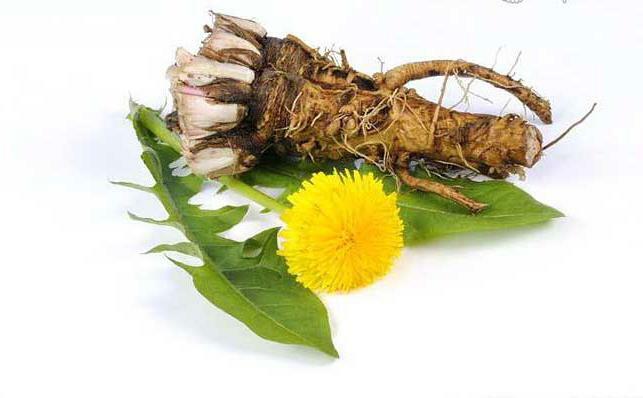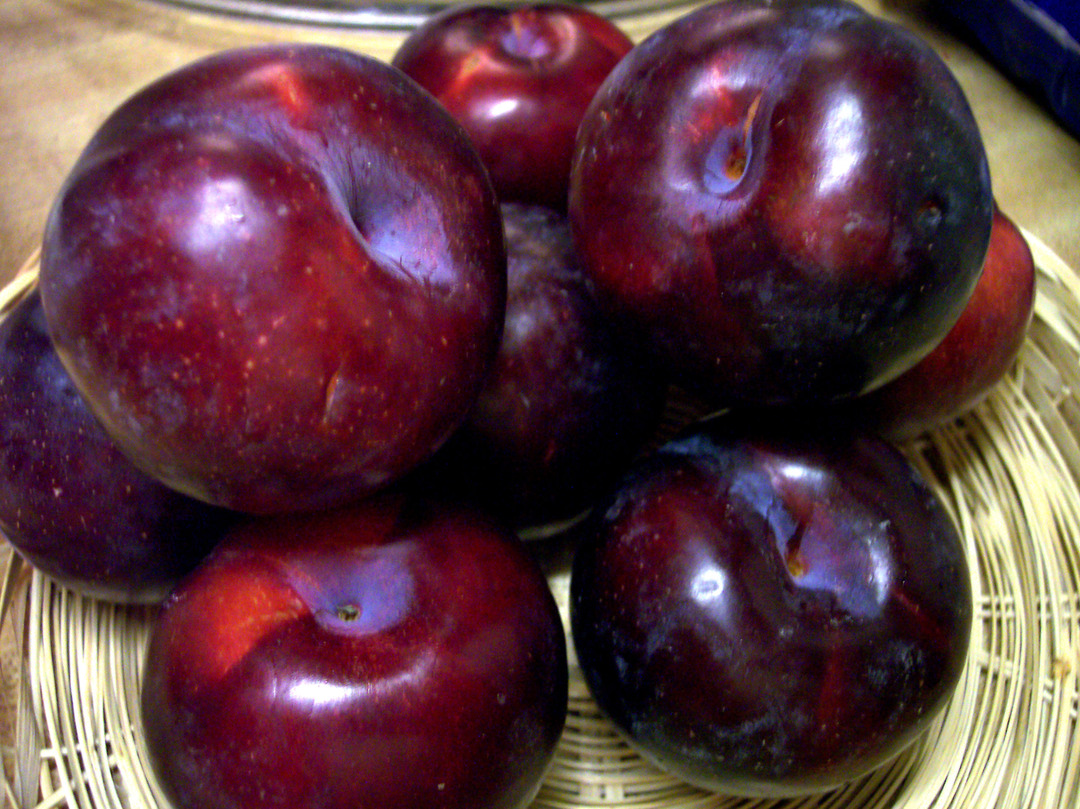Fennel: benefit and harm
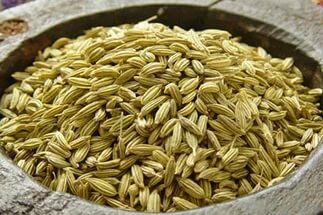
Fennel is a perennial herbaceous plant of the genus umbelliferous.It has an unusual shape with a dense fleshy root bulb.Stalk of fennel branched, with a lot of pointed thin leaves.The plant blossoms in summer, small flowers of pale yellow color are collected in inflorescences - umbrellas.Fruits appear in the beginning of autumn.They are a twin-legged oblong form.Inside it are small fennel seeds.
The first mention of this plant was found in the chronicles of ancient India about five thousand years ago.Ancient Egyptians also used fennel in both cooking and medical purposes.There was a belief that the plant has a magical power - it protects against evil eye and evil spirits.And the Romans used spices to fight fleas.
Interesting! In Greek, the word fennel sounds like " m arathron", which in translation means "lose weight".Long ago, many Christians chewed his seeds in the days of fasting.
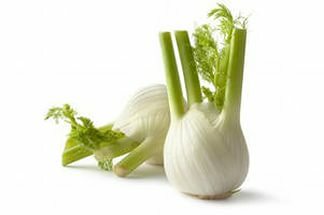 Today fennel is grown in many countries.In the wild, this plant is found in Central Asia, Transcaucasia and the Crimea.For cultivation at home, soft, fertile soil, saturated with microelements, or, better, chernozem, is the best choice.
Today fennel is grown in many countries.In the wild, this plant is found in Central Asia, Transcaucasia and the Crimea.For cultivation at home, soft, fertile soil, saturated with microelements, or, better, chernozem, is the best choice.
Grow it semen in the early spring.Before planting the soil is necessarily cooked, loosened and fertilized.Plant the seeds in rows of 1.5-2 meters, respecting the distance between them at 30 cm. When the plant grows, it will need this place for the full development of the over-root part.
Nutritional value fennel
Nutritional value of 100 g:
- Calories: 345 kcal
- Proteins:
- c 15.8 Fats: 14.87 c
- Carbohydrate: 12.49 g
Show alllist »
- Dietary fiber: 39.8 c
- Ash: 8.22 c
- Water: 8.81 g
- saturated fatty acids: 0.48 g
Vitamins:
- VitaminA( RE) 7
- mcg Vitamin B1( thiamine) 0.408 mg
- Vitamin B2( riboflavin) 0.353 mg
- Vitamin B6( pyridoxine): 0.47 mg
- Vitamin C: 21 mg
- Vitamin PP( niacin equivalent): 6.05 mg
Macronutrients:
- Calcium 1196 mg Magnesium
- :
- 385 mg Sodium 88 mg Potassium
- 1694
- mg Phosphorus: 487 mg
Microelements:
- Iron: 18.54
- mg Zinc 3.7 mg Copper
- 1067 mcg
- Manganese: 6,533 mg
Leaves and fruits of fennel contain the richest complex of vitamins and minerals:
- Vitamins - A, B6, B12, C, D.
- Microelements - calcium, potassium, magnesium, iron, sodium.
Useful properties of fennel
A huge amount of vitamins from different groups helps the human body cope with many diseases and strengthen immunity.Fennel leaves have antibacterial and antiseptic properties.Essential oil from fennel fruit has anti-inflammatory and wound-healing effect.
Broth from the leaves of fennel helps to overcome insomnia and avoid critical complications in severe nervous disorders.Scientific studies have shown choleretic and diuretic effects of fennel.It helps to restore the work of the gastrointestinal tract, especially with chronic violations of intestinal motility.
From fennel, the so-called "dill water" is prepared, which is recommended to give to small children with the accumulation of gases in the stomach.It is worth noting that this property of fennel was noticed by the ancient doctor Hippocrates - he advised giving a decoction from the plant to children with intestinal colic.
important to know: start taking fennel is necessary in small doses to avoid intolerance of the product.
Possible harm from the use of fennel
-
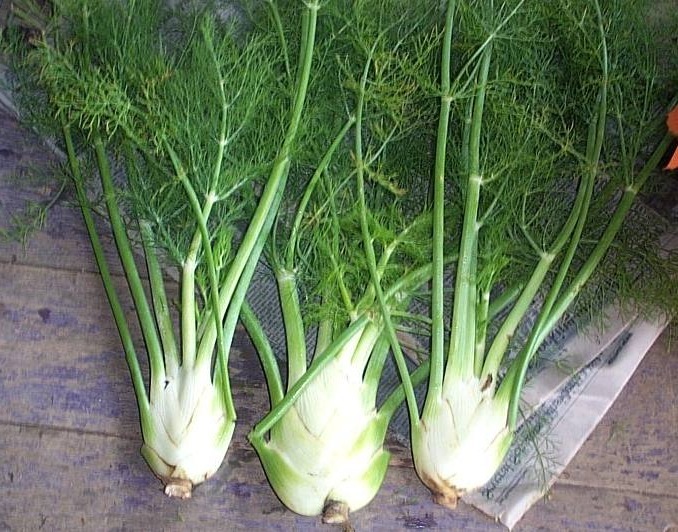 Because the product has a choleretic, diuretic and laxative effect, its use is highly undesirable in diarrhea.
Because the product has a choleretic, diuretic and laxative effect, its use is highly undesirable in diarrhea. - With caution, a decoction of fennel should be consumed by pregnant women.The plant contains hormones that are competitors of female sex hormones.
- Special care should be taken when using fennel in people with heart rhythm disturbances.
- A large amount of fresh fennel consumed in food can cause bleeding.
Folk recipes from fennel
The recipes of traditional medicine use fruits and fennel leaves, as well as essential oil from this plant.Most often used such forms as broth, infusion and extract.
For bronchitis and chronic cough
5-7 drops of fennel essential oil are dissolved in 100 grams of warm milk.You need to use it in small sips, but immediately the whole serving until the drink cools.It is enough once a day.
For gastritis
For the treatment of diseases of the stomach, the following collection of herbs is required: 1 tsp of dry crushed fennel fruits, 1 tsp licorice root, 1 tsp althea root.The mixture of herbs is thoroughly mixed.1 tablespoon of the collection is poured into 20 ml of hot water and infused for 20 minutes.Prepare the infusion immediately before use every evening after eating.
For weight loss
Recommended to read: Fennel seeds perfectly suppress hunger and also have a diuretic effect.In combination with exercise, this gives a steady and visible weight loss effect.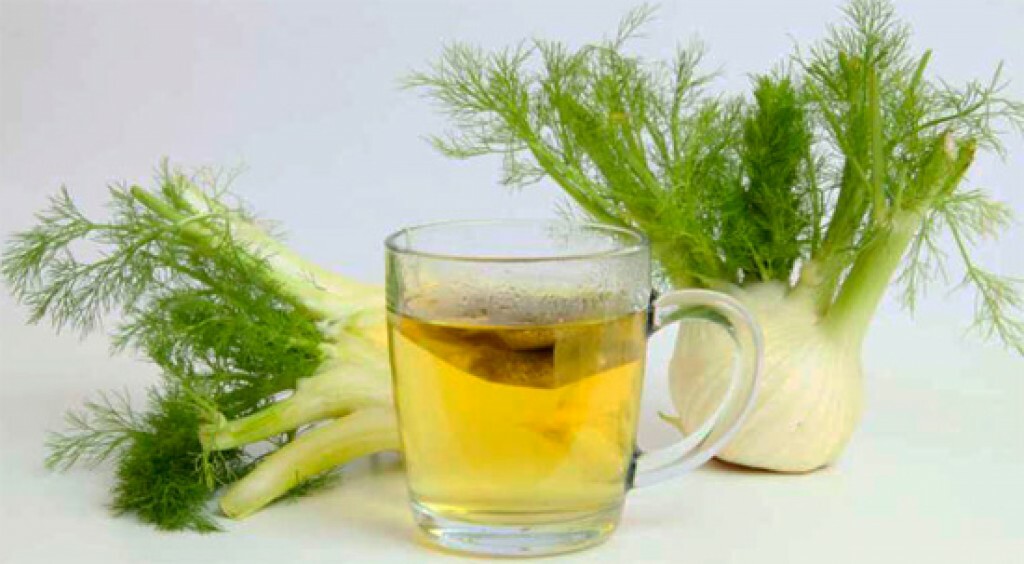
To lose weight, fennel tea is prepared as follows: 20 grams of seeds are poured into 200 ml of cold water.On slow fire the broth is brought to a boil, then filtered and cooled.For best results, dry fennel leaves are recommended to be added as aromatic spices.

